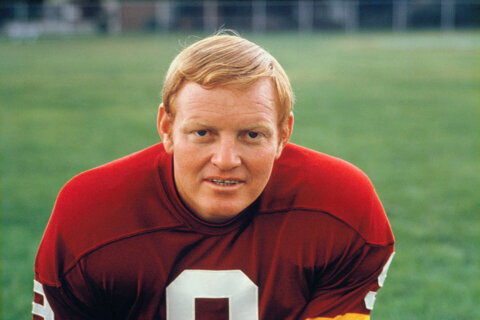WASHINGTON — Every year, we hear people rant and rave about who got snubbed for the All-Star Game. The problem with this reasoning is rooted in the belief that an All-Star selection is something someone deserves. And that’s simply not how the system works.
All-Stars are chosen by people — the starting lineups by the fans, the pitchers and reserves by other players and managers. There are rules, including the mandate of at least one player from each Major League team, that inevitably keep more deserving players from being selected. But this is not a snub — it is merely the system working as it has been designed to work.
And that’s OK. No, really, it is.
Justin Turner is having an incredible season and rightly deserved to win the MLB Final Vote. But even if he hadn’t, it wouldn’t have been a travesty.
The All-Star Game is supposed to be an exhibition, specifically put on for the fans. It’s the chance to see not just the best, but the most popular players compete all in the same game, at the same time. It may mean less in an age of ubiquitous televised games, where anyone with a subscription can watch any team across the league any night of the week. But it’s still a one-of-a-kind spectator event.
The game rightly no longer determines home field advantage in the World Series or anything else of any value to the regular season, so it doesn’t matter for any practical purpose that the very best players aren’t starting or even participating.
Bryce Harper has been an All-Star every year he’s been in the league, other than 2014. Did he deserve to be last year, slashing .256/.399/.491 before sputtering to the finish line? Who cares? The fans wanted to see him play, and they got to, the year after his historic MVP campaign. Just a year later, almost nobody remembers who he started in front of (it was Carlos Gonzalez). And if the fans voted Harper in, despite a down year, don’t you think they are happy they got the chance to see him play?
The only problem comes when we start defining contract incentives — and, down the line, Hall of Fame resumes — based on All-Star appearances. These are things that should be determined on merit. All-Star selections may have some correlation to that, but not necessarily.
Ken Harvey was an All-Star for the Royals in 2004. More recently, Dominic Brown represented the Phillies in 2013. Eduardo Nunez went for the Twins last year. Anyone remember the Orioles’ selection in 2010? It was Ty Wigginton. Really.
Meanwhile, Adam LaRoche never made an All-Star team, even in 2012, when he finished sixth in the MVP race. He slashed .287/.347/.522 with 18 home runs in the second half that year, which wasn’t even his best post-break performance. In 2006, he followed a sluggish start with a .323/.387/.655 finish, including 19 home runs.
The All-Star system hurts players like LaRoche who tend to have stronger second halves. Jayson Werth has been an All-Star just once (2009), despite three top-20 MVP finishes since then. Same goes for Chris Davis (2013), despite smashing a league-leading 47 home runs in 2015.
Hopefully players (and their agents) are smart enough to tie their performance incentives to actual performance, instead of popularity contests. Because when All-Star voting starts just 20 some-odd games into the season, there’s no hope of the game’s participation ever really being a meritocracy.
So, stop worrying about who did or didn’t make it and just enjoy the game.







